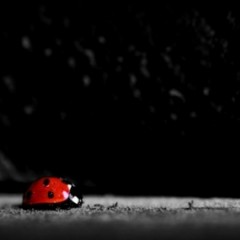If you've (contraction!) reached this point - well done! I'm (I am) really proud of you and your a champion! If there's (there is) anything you don't (do not) understand, please feel free to contact me.
Righteo...
The second use for apostrophe's is the possessive. Ooops - did you catch that? I certainly hope so, because it's one of the worst abuses of English to be found.
Do not use an apostrophe for plurals.
Now write that 1000 times on the blackboard.
Do not use apostrophes for plurals. Full stop. Ever. Amen.
Not for tomato's or potatoe's or taxi's or fox'es or clock's, cat's or canto's! NEVER, OK? Or banana's.

An apostrophe before an 's' is simply to show possession of something. Read the examples below and see if they make sense.
The cat's potatoes. The cat (one cat) has two or more potatoes. They belong to him.
The cat's potato. The cat has a potato. It belongs to that particular cat.
The cats have long tails. Yes - the cats have tails, but we are not talking about any specific cat here - we are talking about cats in general. If we were talking about a specific cat, say Felix, we would write:
Felix's tail is very long.
The fox's hole. The fox (a specific fox) has a hole
Freddy's hole. Freddy the fox, that is. The hole belongs to Freddy.
The foxes have holes. Foxes (in general) have holes.
Now what about PLURAL possessives? It gets a little trickier...
If we are talking about two cats owning potatoes, we write:
The cats' potatoes. The word 'cats' is a plural and the sentence means that two or more cats have two or more potatoes, so the apostrophe goes AFTER the 's'.
If we are talking about children - the plural of child - owning a playground, we would write:
The children's playground. NOT...The childrens' playground. Why? Because the word children is already a plural and we are using a 'singular plural' with an apostrophe to denote possession of the playground. Ouch! (Sigh - I know, I told you it would get trickier)
If we are talking about lots of dogs owning lots of yak felt beds, we would write:
The dogs' yak felt beds were full of fleas. Two or more dogs, each owning a yak felt bed, which contained lots of fleas. (No apostrophe for fleas - the fleas don't own anything in this sentence even if they think they own the dogs)

OK - it's difficult to get it right every time. And there are some notoriously difficult instances where grammarians argue bitterly over correct usage. But if you remember that plurals don't ever need an apostrophe and you need them to denote possession, you'll be doing extremely well.
A quick word about plural forms ending in 'O'
Oh and don't forget that some words that end in 'O' have an 'OE' for the plural form and some don't. Just to make things more complicated! Potatoes. Tomatoes. Heroes. Cantos. Tangos. And some allow both! Mangoes and mangos. Sometimes it just depends on which dictionary you consult. And sometimes, it honestly doesn't matter all that much. Get it right MOST of the time and if in doubt, consult a grammar website.
P.S. There is a deliberate mistake on this page. Find it and PM me - don't write it in the comments section. Any other errors - please let me know in the comments.
And then: "...are made of finest yak felt...", shouldn't that be: "...are made of THE finest yak felt..."? WIthout the capitalisation, of course?
At point 2, a space between 'to' and 'join' is missing.
I think I have my commas reasonably under control, even though I'm handicapped by my native language (Dutch) using a slightly different set of rules for their usage. But when the Oxford comma comes into play I get hopelessly lost. The colons and semicolons tend to drive me bonkers at times. If I can just remember what you wrote about them here, I might improve!
I really like this training, because I need it.
Since my mother tongue is not the English language, it is hard to get some content well written.
Do you have maybe an idea how I can improve the quality of my content with a tool or something?
I use the free plug-in of Grammarly.com right now, but it's expensive to buy it.
Thanks,
Grtz,
Bert










